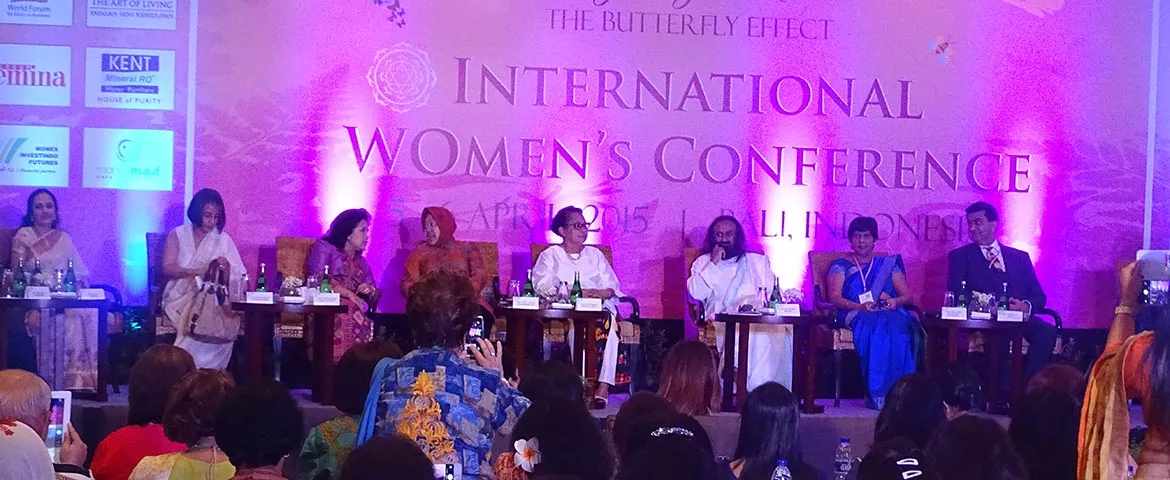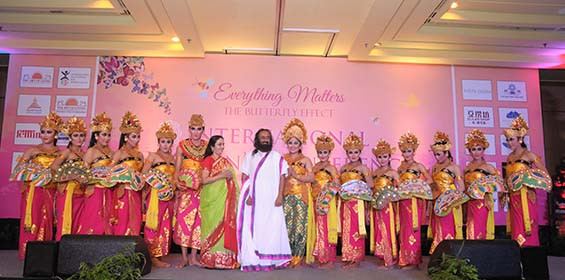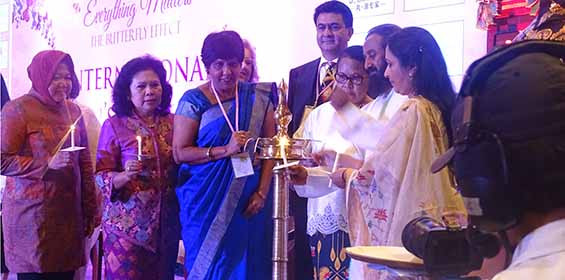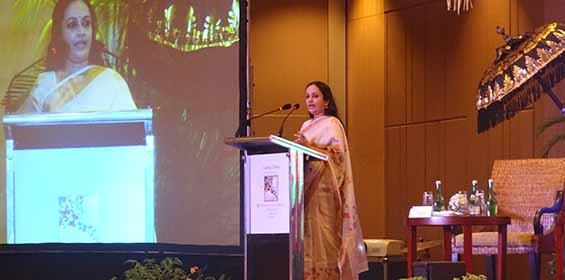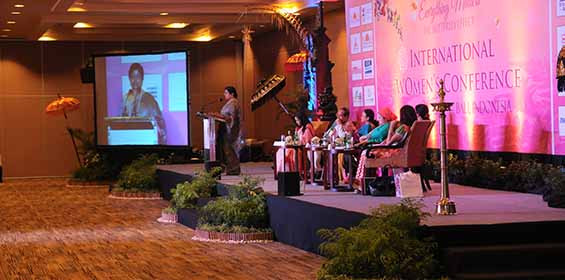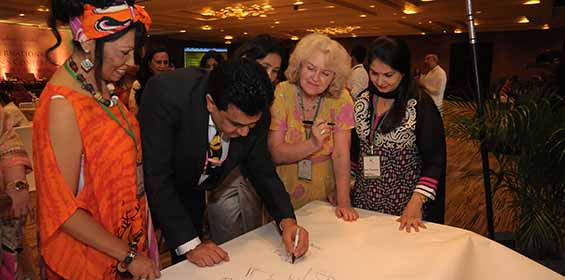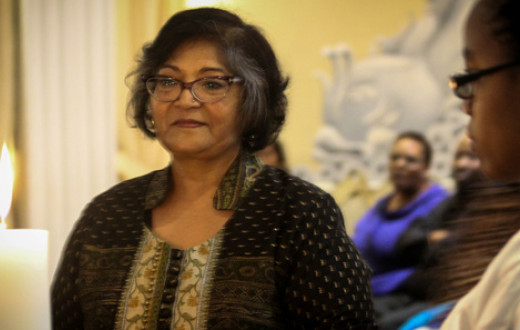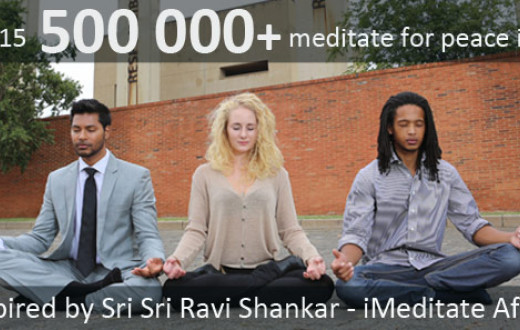Excerpts from the Speech of Ms Kavita Khanna Barrister, Economist (LSE), Public Health, Animal rights.
Director IAHV & World Forum For Ethics in Business, India.
I like to introduce myself not by my qualifications but by saying that, I am the mother of two children and I am a mother who wants a better future for her children.
But I do believe with every cell in my body that till every child has a better future, it’s not possible for any child to have a better future and one of the things that I see happening to me increasingly is that the sense of the motherhood in me is extending, not just to children of human race all over the planet, but also to animals. I think that if you look at the environment conservation movement, till the industrial revolution, there really wasn’t any need for environmental activists because everything was generally in harmony with nature but once we had accelerated industrialization, we have actually commoditized the earth where the earth has become the source of raw materials and a source to produce more and more of what we want.
A tipping point was post the Second World War when there was so much of reconstruction to be done and there was such an inflection in modern technology. I’d like to quote the US Secretary of Treasury, Magan Thor, at the founding of the International Bank for Reconstruction and Development (IBRD), now known as the World Bank (WB). He said the bank would help create a dynamic world economy in which people of every nation will be able to enjoy increasingly the fruits of material progress on an earth infinitely blessed with natural riches and if you add to this technology in that time in the fifties, they were talking about technology being an inexhaustible resource which would dispel all thoughts of resource shortages whether they are temporary or permanent. And i think most unfortunately, since that time, we have assumed rights and powers that I don’t think we have a right to develop the earth limitlessly, to keep taking in a way that it is simply not possible to give back. The coal and the oil industry are an example of this because no matter what we do, we are never going to be able to create coal and oil for I don’t know how many hundreds and thousands of years because that’s a natural process that takes time.
The environmental movement really started in the 60s and Rachel Carson wrote a book called ‘The Silent Spring’ where she pointed out that actually what was happening is because of pesticides, because of DDT. This was the first study that really came out about the influence of pesticides and chemical fertilizers because what was happening is these poisons were going up the food chain and least we think that the technology has all the answers, The American Cancer Society says that one in two men and one in three women who are alive on this planet are going to have cancer in their lifetime and this can be directly traced back to the food chain and what we are eating, the chemicals and the fertilizers.
Since this is a conference about the butterfly effect where even the smallest thing can have a major impact, I am taking this opportunity to plant the seed of an idea that really, the time has come when we cannot treat any form of life as being lifeless and we most certainly do not have the right to subject animals to torture and pain for their entire life and then slaughter them in ways that are probably worse than anything that happened in any concentration camp. I want to finish by saying, I would like to refer you all to a speech, you can google it, it’s called ‘The Best Speech Ever’, by the Ex-CEO of Citibank, Philip Wollen as he said that, ‘in the entire history of the planet, only a hundred billion humans have inhabited the planet of which seven billion are alive today and yet we slaughter two billion animals every week!’.
